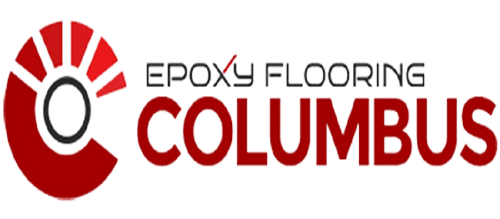Unveiling the Magic of Epoxy Flooring: A Comprehensive Exploration

Epoxy flooring is a popular and versatile option that is becoming increasingly popular in homes and businesses. It is an attractive, durable, and low-maintenance flooring option that comes in a variety of colors and styles.
In this comprehensive exploration of epoxy flooring, we'll cover the benefits, drawbacks, types, installation costs, and maintenance requirements to help you decide if it's the right flooring option for you. So, whether you're looking to spruce up your garage or commercial space, epoxy flooring could be the perfect solution. Let's dive in!
Benefits of Epoxy Flooring
You'll be amazed at the many advantages that epoxy floors offer you! Epoxy flooring is a durable and attractive option for many surfaces, including garages, showrooms, basements, and other home areas. It's easy to clean, resistant to wear and tear, and can even be customized with decorative finishes. Epoxy flooring is also a great choice for commercial applications, as it is slip-resistant and impervious to moisture, making it ideal for restaurants, hospitals, and warehouses.
Additionally, epoxy flooring is significantly more affordable than other flooring options, such as tile, and can be installed quickly and efficiently. The long-lasting, low-maintenance nature of epoxy floors makes them an excellent option for any home or business owner looking to improve their space.
Drawbacks of Epoxy Flooring
Discovering the drawbacks of this type of flooring may make you pause before choosing it for your home. One of the primary drawbacks of epoxy flooring is its cost. Installing epoxy flooring may be expensive, and the cost may vary depending on the type of material and size of the area that needs to be covered.
Additionally, epoxy flooring is not the most durable option, and it can crack or chip over time. This can be problematic if you have kids or pets in your house, as they tend to be harder on the flooring. Epoxy flooring can also be difficult to repair if it becomes damaged, as it requires special skills and tools. Lastly, epoxy flooring can be slippery if not treated with a non-slip coating, and it can be challenging to clean, as certain chemicals can damage it.
Different Types of Epoxy Flooring
If you're looking to spruce up your home, epoxy flooring is an attractive and stylish option to consider. There are many types of epoxy flooring available, each offering its own unique set of benefits and drawbacks. The two main types of epoxy flooring are solvent-based and water-based. Solvent-based epoxy flooring is a more durable option and is less likely to peel or chip compared to water-based epoxy flooring. It also provides a glossy finish and is more resistant to scratches and stains.
On the other hand, water-based epoxy flooring is a more cost-effective option and easier to apply than solvent-based epoxy flooring. It is also better for the environment, as it is VOC-free. No matter which type of epoxy flooring you choose, it will surely provide your home with a stylish and attractive look.
Installation Costs of Epoxy Flooring
Installing epoxy flooring can come with a hefty price tag, so it's essential to consider the cost before taking on a project of this magnitude. The cost of an epoxy flooring project can vary greatly depending on the size and scope of the project, as well as the quality of the materials used. Generally, the cost of an epoxy flooring project will range from $2 to $10 per square foot. However, larger projects may require more expensive materials, resulting in a higher total cost.
The installation process for epoxy flooring can also be complicated and time-consuming. Therefore, it's essential to factor in the cost of professional installation, ranging from $3 to $15 per square foot. Professional installation may be necessary for larger projects and may even be recommended for smaller tasks to ensure a quality result. In addition, it's important to consider any additional costs, such as the cost of sealers or other finishing products, which can add to the project's total cost.
Maintenance Requirements of Epoxy Flooring
Keeping your epoxy flooring looking its best doesn't have to be a chore - just a few simple maintenance steps can ensure it looks great over time. Regularly cleaning with a damp mop and mild detergent is key to keeping dirt and dust from settling on the surface. To protect against scratches, it's also recommended to use a soft-bristled broom or vacuum instead of a mop. Additionally, using a protective sealant every few years can help maintain the floor's shine and reduce the chance of absorbing liquids.
If there are any spills or stains, they should be wiped up as soon as possible with a cloth or paper towel. It's also important to avoid using harsh chemicals on epoxy flooring as they can damage the surface or leave a residue. For more persistent stains, a mild degreasing agent and a soft brush can gently scrub away the stain. With these simple steps, your epoxy flooring will remain great for many years.
Key Takeaways
- Versatile and Durable: Epoxy flooring offers remarkable versatility and durability, making it suitable for various applications. For residential, commercial, or industrial settings, epoxy flooring provides a long-lasting solution that can withstand heavy foot traffic, chemical spills, and impact.
- Aesthetic Appeal and Customization: Epoxy flooring goes beyond functionality and offers an array of design options. From solid colors to vibrant patterns, metallic effects, and 3D illusions, epoxy can be customized to create visually stunning floors that enhance the overall aesthetic of any space.
- Easy Maintenance and Hygiene: One of the significant advantages of epoxy flooring is its low maintenance requirements. The seamless surface is resistant to stains, dust, and dirt, making it easy to clean and maintain.
Contact
Send a Message
Ready to transform your space with Elite Epoxy Coatings? Fill out our quick and easy contact form and one of our experts will be in touch with you shortly!
